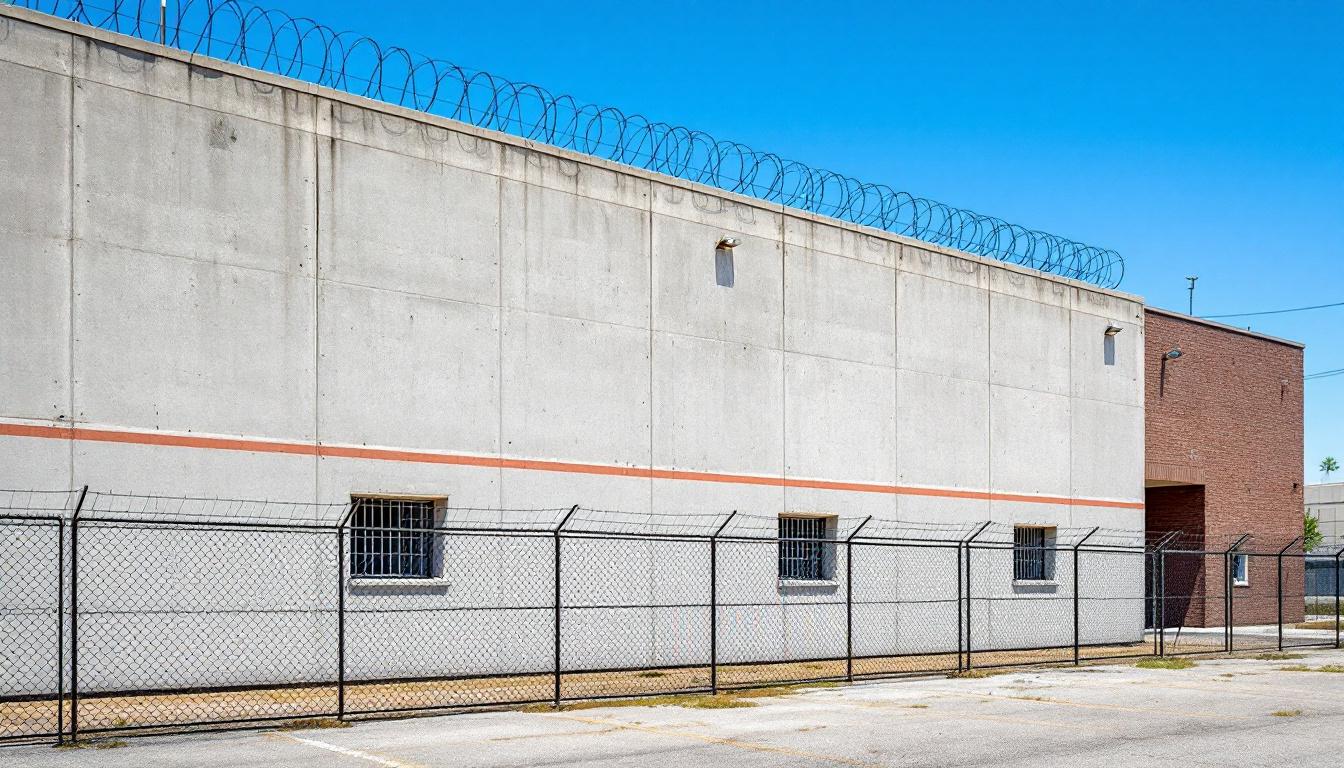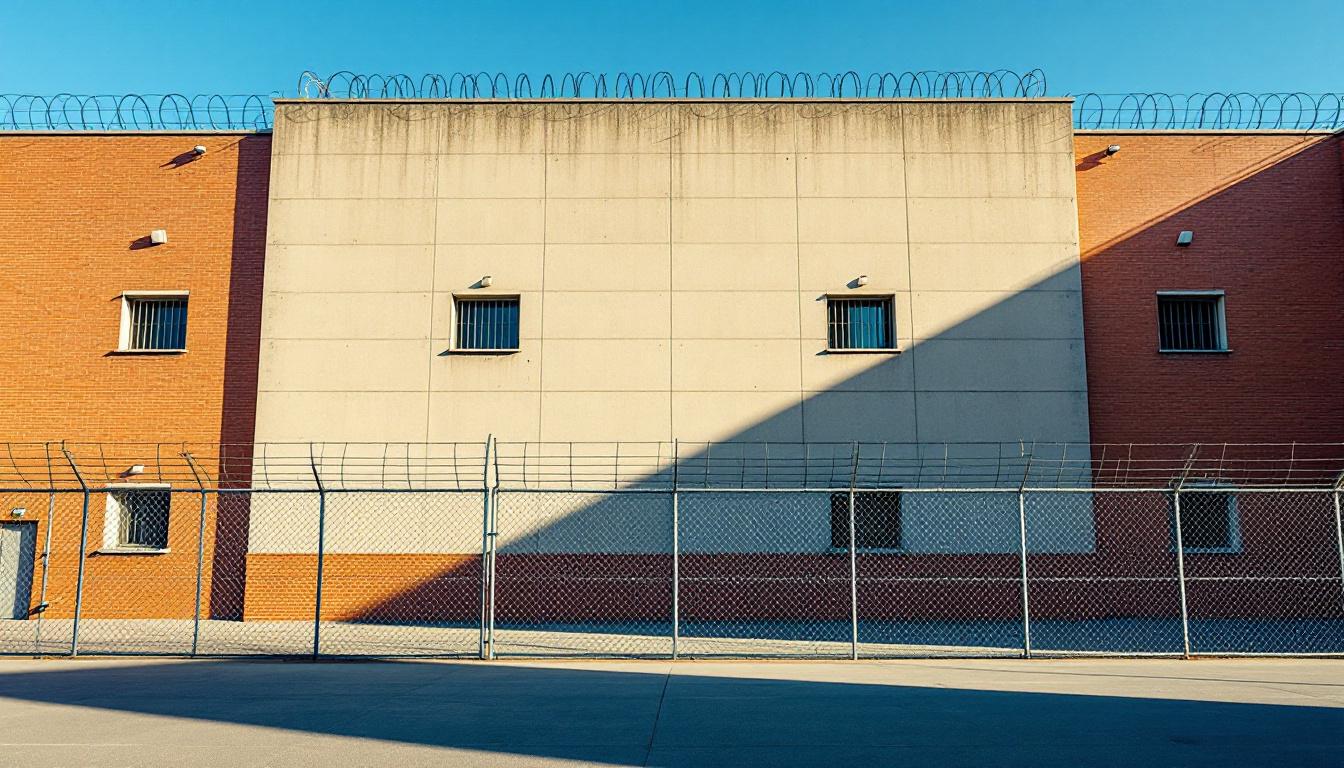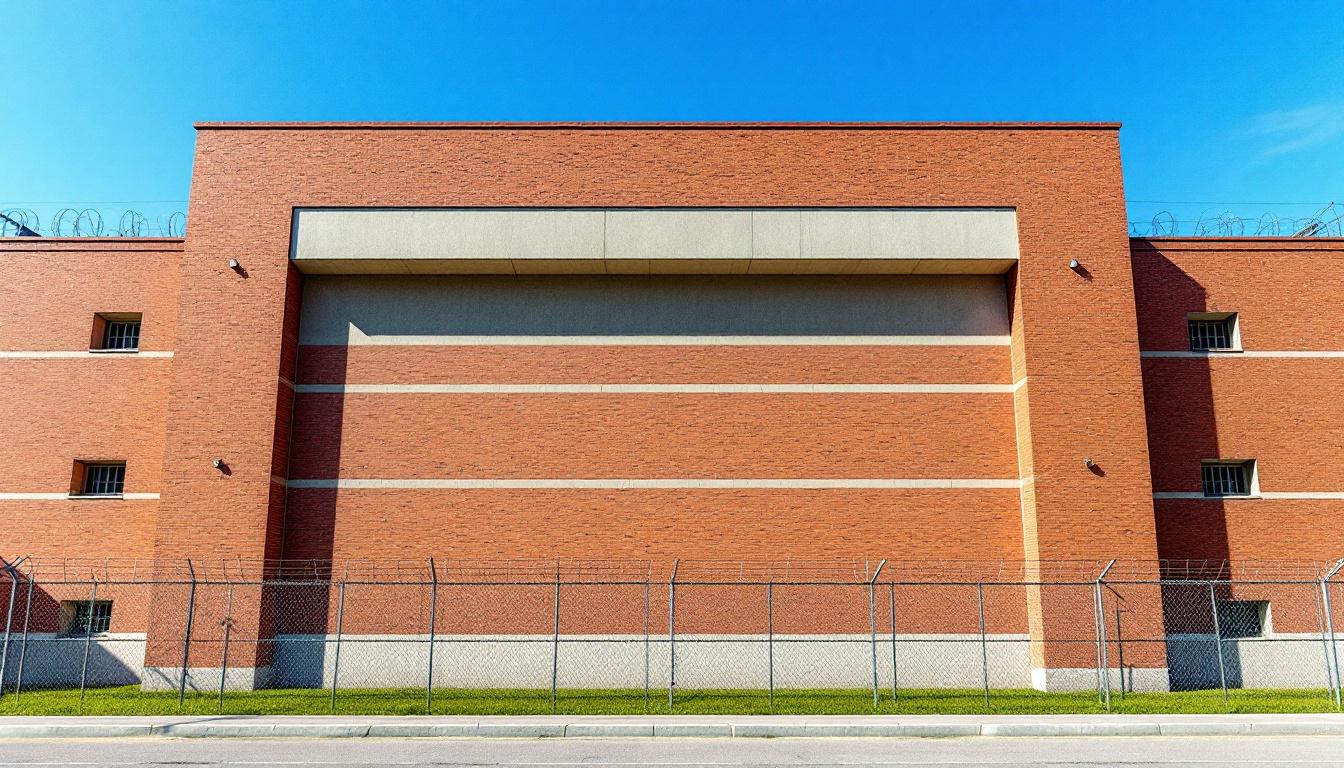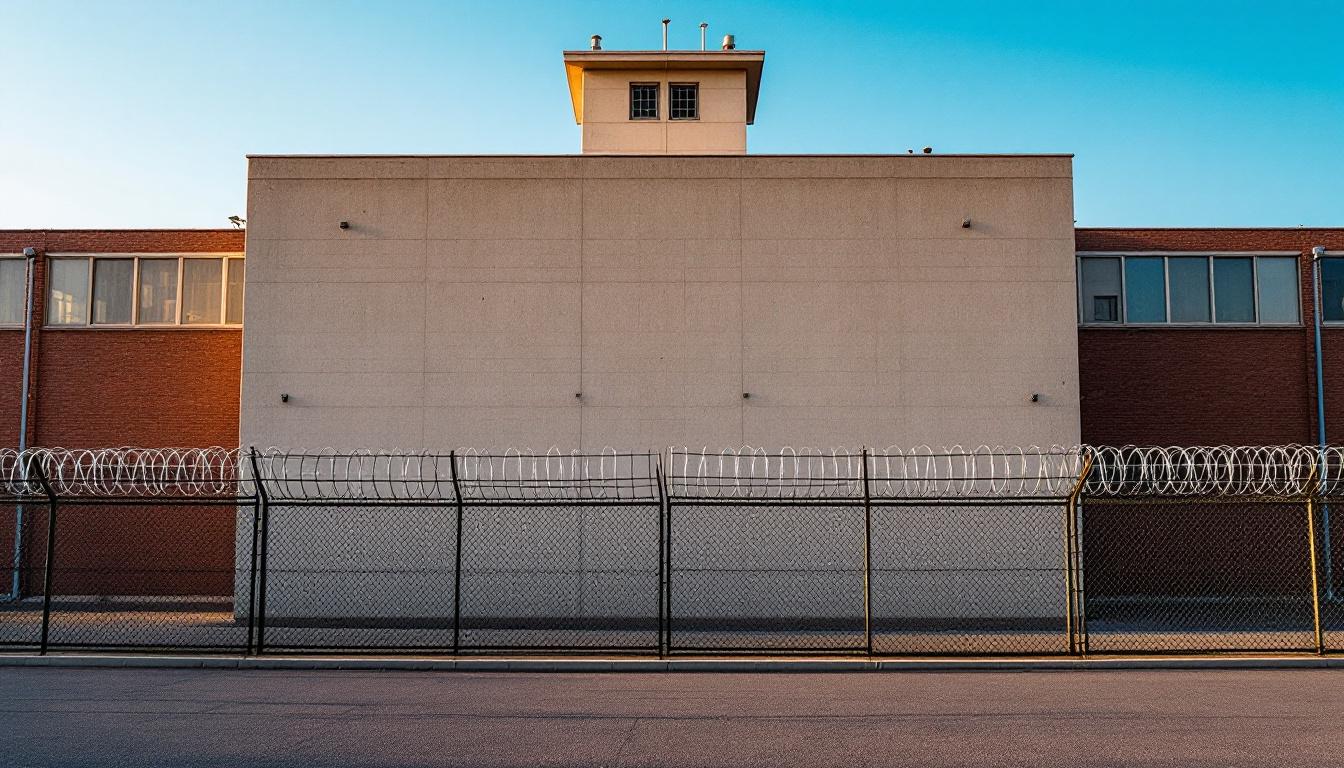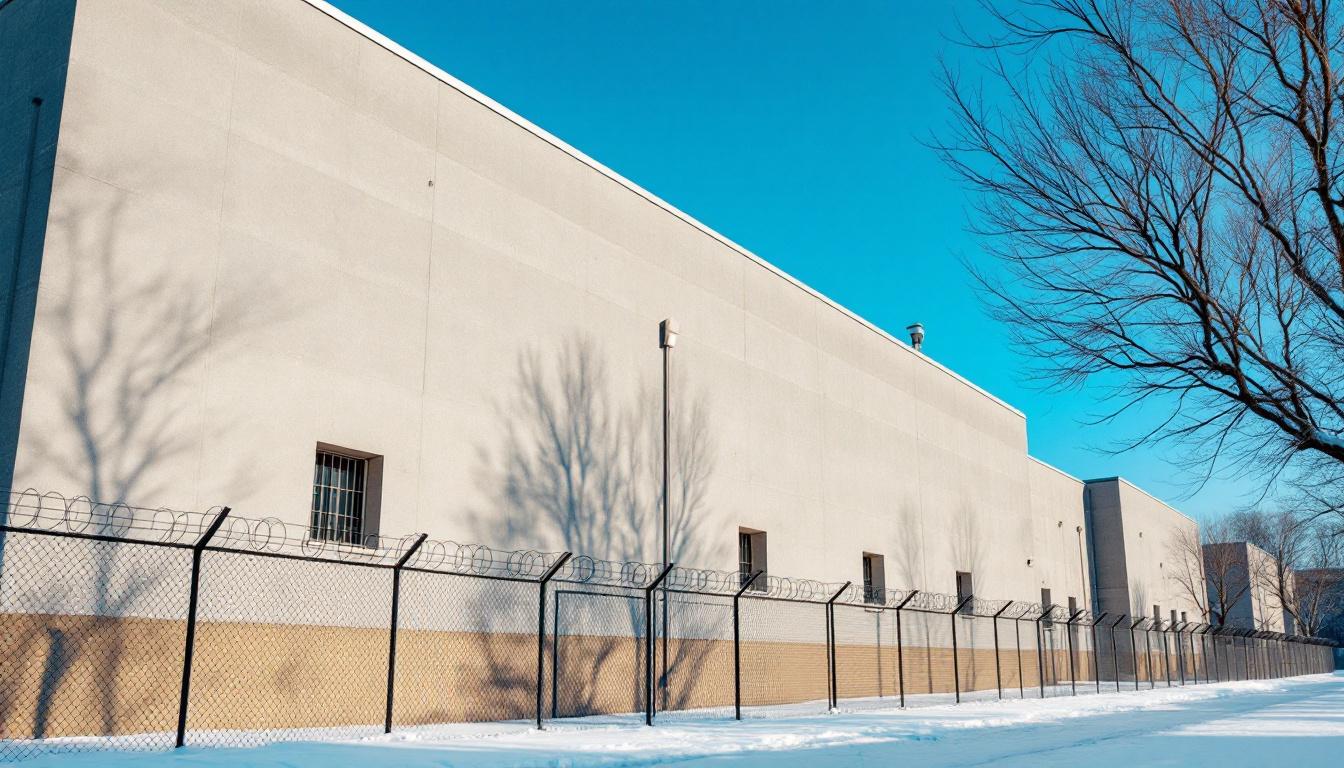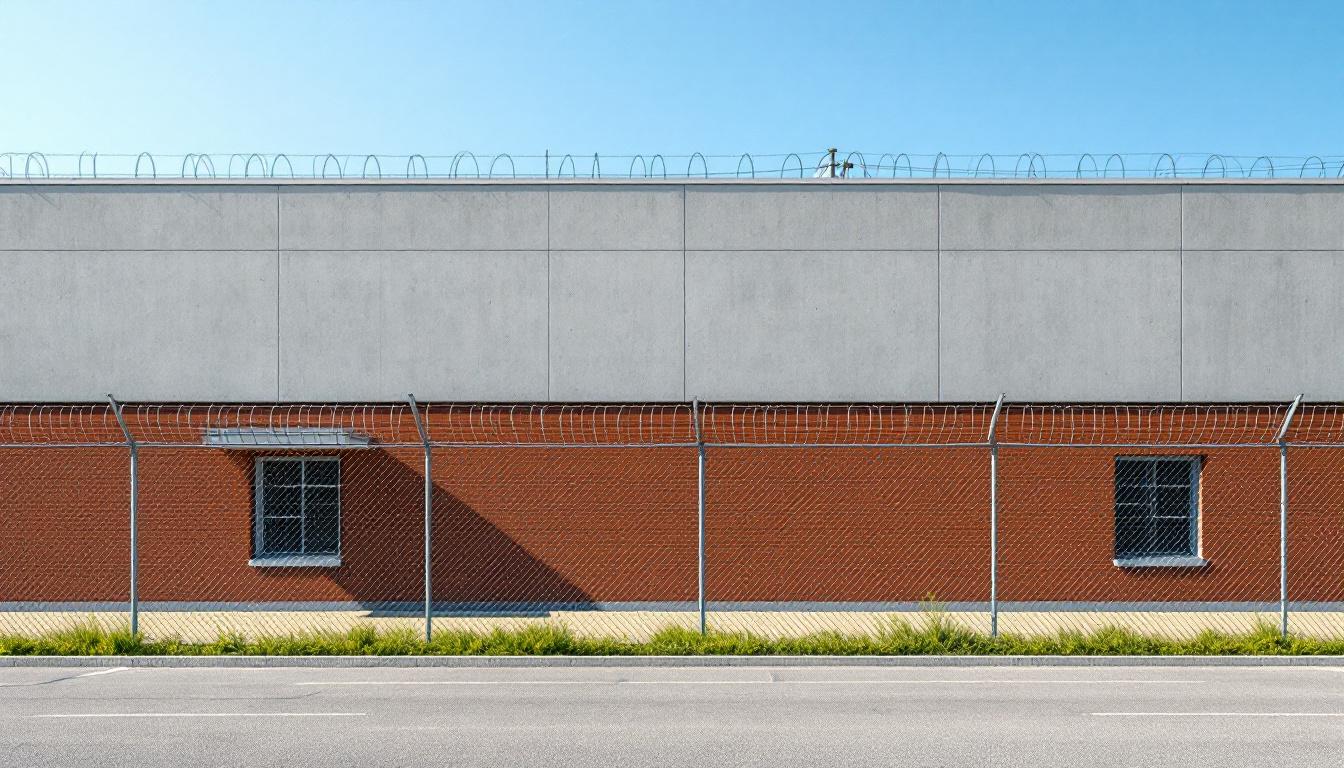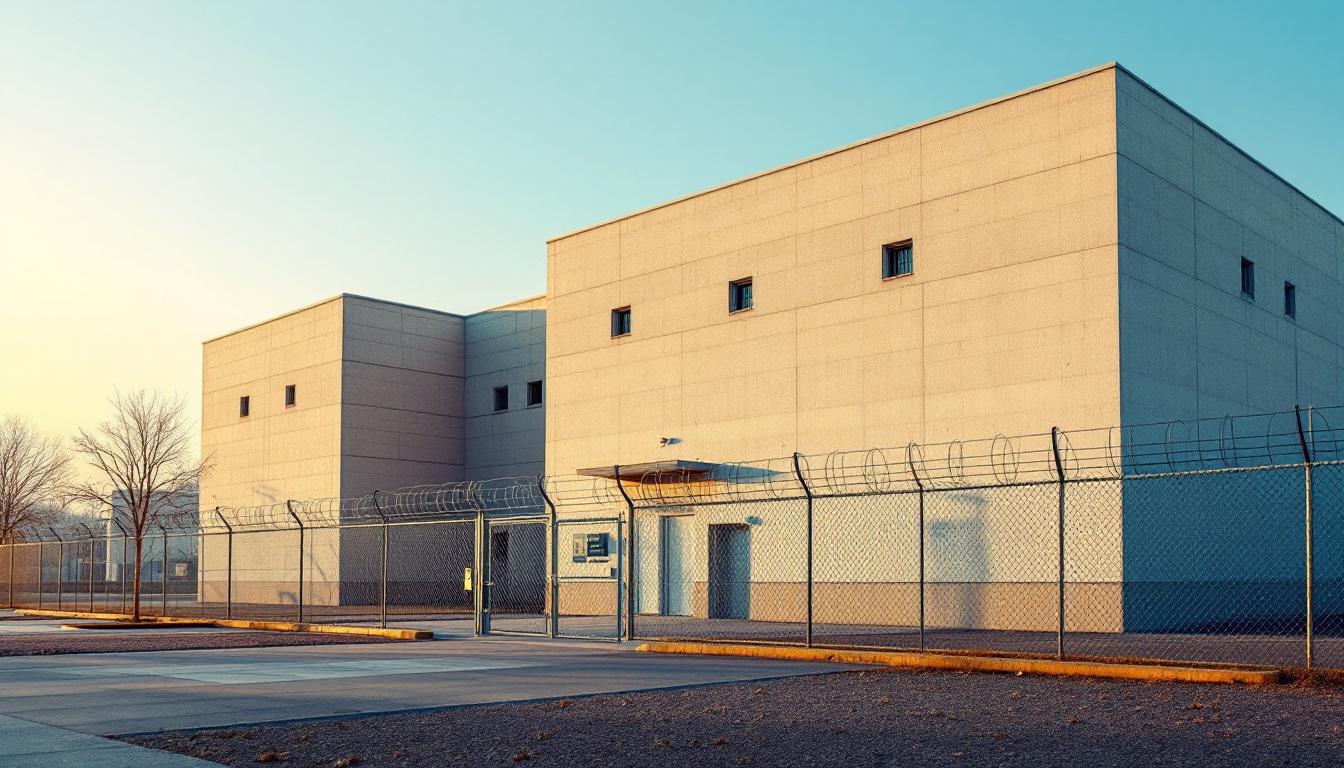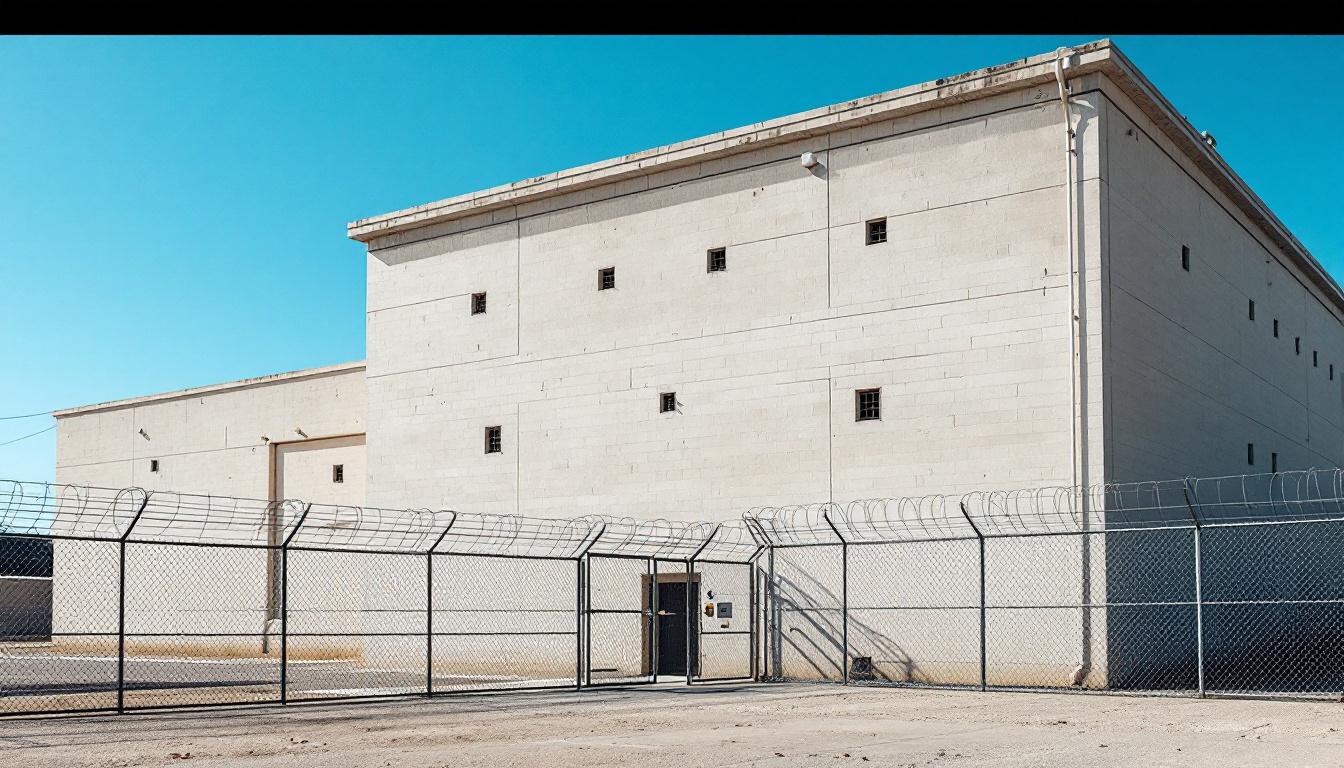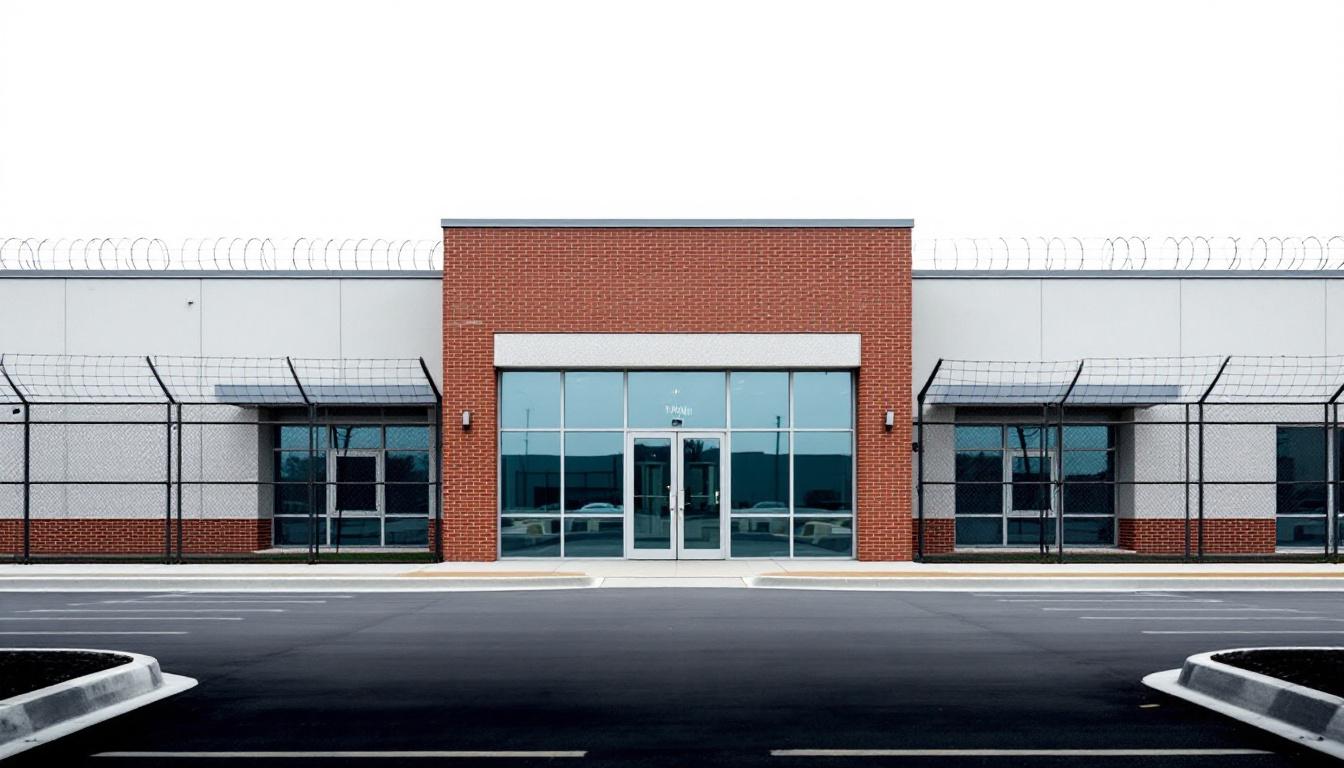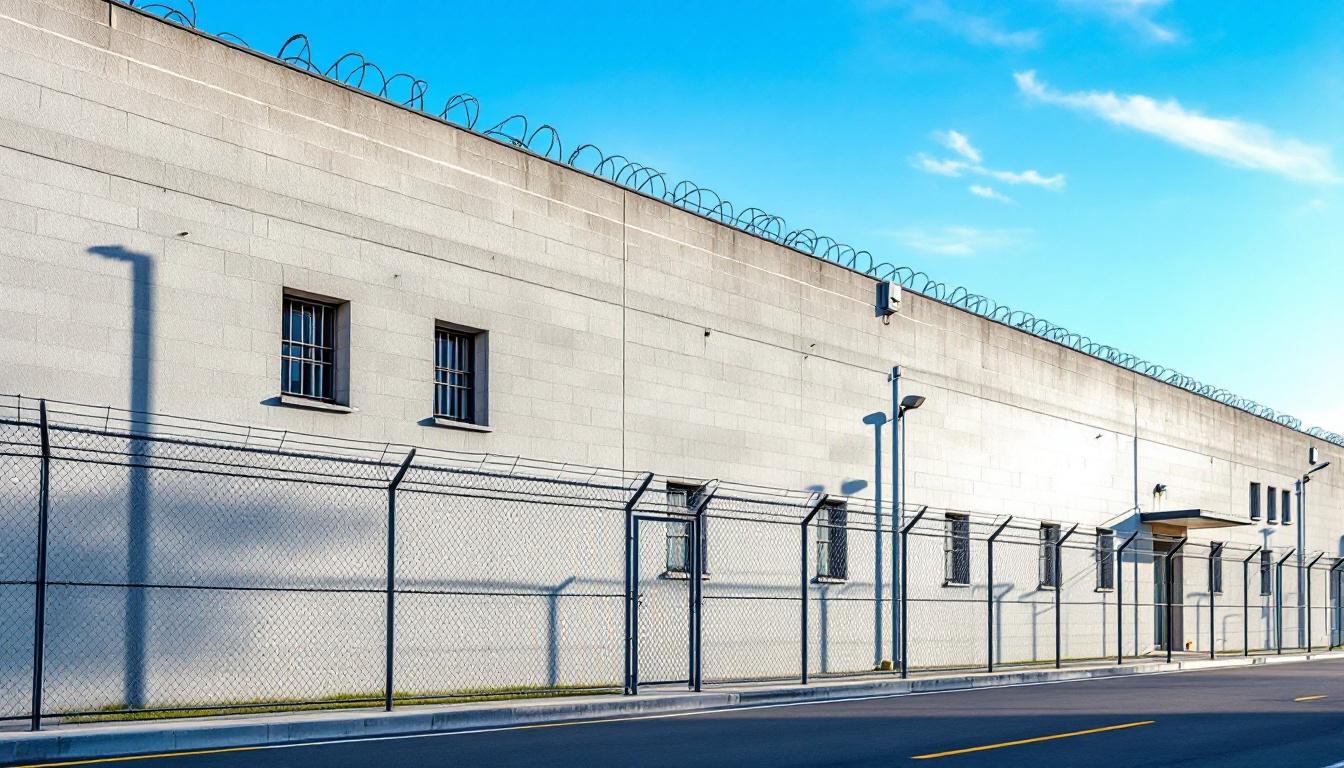
Quick Navigation
How to contact an inmate at Tensas Parish Detention Center
This comprehensive guide will walk you through how to connect with an inmate at Tensas Parish Detention Center. Follow the steps below to find an inmate and send letters and photos:
- Search for the inmate using our search tool below
- Create your account or log in to Penmate
- Write your message (up to 6,000 characters)
- Send instantly - inmates receive printed copies daily
Find an Inmate
Search for an inmate to start communicating today
Tip: You can search by first name, last name, or inmate ID number
To contact a person at Tensas Parish Detention Center start by searching for the person on the official facility website. Perform a search by following these steps:
- Step 1: Enter their first name and last name into the search form and click "Search"
- Step 2: Locate their inmate record
- Step 3: Write down their Inmate ID and any housing information provided
Important! Be sure to enter the person's full name. Nicknames should not be used.
How to Send Messages to Inmates

You can use your phone or computer to send emails, letters, and photos to an inmate. Messages are sent electronically to inmate tablets or kiosks at the facility. If you would like to send a message, start by searching for an inmate at Tensas Parish Detention Center.
Sending Photos and Postcards

A great way to send love and support to a loved one at Tensas Parish Detention Center is to send photos and postcards. It only takes a few minutes to send photos from your phone and it makes a huge difference. You can also mail postcards with words of support and inspiration, or design your own postcard for special moments like birthdays and holidays.
Important! Be sure not to send any explicit photos or they may not be approved by the facility. You can also use a photo printing app like Penmate to make sure your photos are printed at the correct size (4x6 or 3x5) and are mailed according to the rules and regulations of Tensas Parish Detention Center.
Frequently asked questions about Tensas Parish Detention Center
-
How long does it take to deliver a message?
If you're sending an email message your letter is usually delivered within 24-48 hours. For messages sent via mail you should expect delivery within 3-7 days. All messages will need be approved by Tensas Parish Detention Center.
-
How much does it cost to send a message to Tensas Parish Detention Center?
You can send a message free using your phone or mail a message via USPS for the price of a $0.60 stamp and envelope. You can also purchase credits or e-stamps from services starting at $1.99.
-
What services can I use to contact an inmate at Tensas Parish Detention Center?
Penmate
You can use Penmate to send letters and photos to an inmate from your phone. It's an easy way to stay in touch during your loved one's incarceration. Use the inmate locator to find an inmate's location and contact information, then you can send messages within a few minutes.
Securus messaging
Securus may be another option for communicating with an inmate at Tensas Parish Detention Center. You can create a friends and family account and purchase credits to send messages. All messages will be reviewed and must be approved by the facility.
JPay
Some county jails and state prisons may support sending messages with JPay. You must register an account with the system, find your loved one, and purchase stamps to send messages. For some locations you can also attach photos.
Smart Jail Mail
You may also check if Smart Jail Mail is available at Tensas Parish Detention Center. Smart Jail Mail is operated by Smart Communications and has contracted with some state and county jails. After purchasing credits, your messages and photos are sent to the facility, printed out, and then handed out to your loved one.
-
What is the mailing address of Tensas Parish Detention Center?
Mailing address:
Tensas Parish Detention Center
8606 US-65
Waterproof, LA 71375
Phone: (318) 749-5810 -
What are the visiting hours at Tensas Parish Detention Center?
Visiting hours at Tensas Parish Detention Center vary by housing unit and security level. Generally, visits are scheduled on weekends and holidays, with some facilities offering weekday visits. Contact the facility directly at (318) 749-5810 or check their website for the current visiting schedule. Visits typically last 30-60 minutes and must be scheduled in advance.
-
What items are prohibited when sending mail to Tensas Parish Detention Center?
Prohibited items typically include: cash, personal checks, stamps, stickers, glitter, glue, tape, staples, paperclips, polaroid photos, musical or blank greeting cards, hardcover books, magazines with staples, and any items containing metal or electronics. Only send letters on plain white paper with blue or black ink. Photos must be printed on regular photo paper (no Polaroids). Always check with Tensas Parish Detention Center for their specific mail policies.
-
How do I send money to an inmate at Tensas Parish Detention Center?
You can send money to an inmate at Tensas Parish Detention Center through several methods: 1) Online using JPay, Access Corrections, or the facility's approved vendor, 2) Money orders mailed directly to the facility with the inmate's name and ID number, 3) Kiosks located in the facility lobby, or 4) Over the phone using a credit or debit card. Fees vary by method, typically ranging from $2.95 to $11.95 per transaction.
-
Can I schedule a video visit with an inmate at Tensas Parish Detention Center?
Many facilities now offer video visitation as an alternative to in-person visits. At Tensas Parish Detention Center, video visits may be available through services like Penmate, Securus Video Connect, GTL, or ICSolutions. Video visits typically cost $10-20 for 20-30 minutes and must be scheduled in advance. You'll need a computer or smartphone with a camera and reliable internet connection. Contact the facility for their specific video visitation policies and approved vendors.
-
What identification do I need to visit an inmate at Tensas Parish Detention Center?
All visitors must present valid government-issued photo identification such as a driver's license, state ID, passport, or military ID. Minors must be accompanied by a parent or legal guardian who can provide the minor's birth certificate. Some facilities require visitors to be on the inmate's approved visitation list, which may require a background check. Contact Tensas Parish Detention Center for specific ID requirements and visitor approval procedures.
-
How can I find out an inmate's release date?
To find an inmate's release date at Tensas Parish Detention Center, you can: 1) Use the online inmate search tool if available, 2) Call the facility's records department, 3) Contact the inmate's case manager or counselor, or 4) Have the inmate provide this information during a call or visit. For privacy reasons, some facilities only release this information to immediate family members.
Facility Overview
Contact Information
Tensas Parish Detention Center8606 US-65
Waterproof, LA 71375
Phone: (318) 749-5810
Official Website

About Tensas Parish Detention Center
Serving Louisiana’s correctional infrastructure through secure detention operations, Tensas Parish Detention, LA functions as a vital component within the state’s broader justice system. Located in Waterproof, this LA correctional facility operates within the rural landscape of northeastern Louisiana, where the community’s geographic setting along the Mississippi River corridor influences both its operational context and regional connections.
The facility typically maintains standard detention protocols while addressing the diverse needs of those incarcerated services through various programming approaches. As a parish-level detention center, the institution generally focuses on providing structured environments that balance security requirements with basic rehabilitative opportunities. Programs may include educational components, work assignments, and counseling services designed to support individuals during their period of incarceration. The facility’s operations often reflect the broader challenges and resources available within Louisiana’s correctional framework, particularly in rural parish settings where community partnerships and resource allocation play important roles in daily operations.
Within Waterproof’s small-town environment, the detention center serves not dedicated as a correctional institution but also as part of the local economic and social infrastructure. The facility typically employs local residents and maintains connections with regional service providers, creating a network of support systems that extend beyond traditional detention functions. This integration reflects the complex relationship between rural correctional facilities and their surrounding communities throughout Louisiana’s parish system.
Programs & Services
Personal transformation begins with access to meaningful opportunities, and those incarcerated at Tensas Parish Detention in Louisiana encounter a comprehensive framework designed to foster individual growth and rehabilitation. The facility’s philosophy centers on providing structured pathways that enable participants to develop essential life skills while maintaining the security and safety standards necessary for effective correctional operations. Through carefully coordinated offerings, the institution typically creates an environment where those incarcerated may engage in purposeful activities that contribute to their personal development and eventual successful reintegration into society.
Educational advancement serves as a cornerstone of the facility’s developmental approach, with programs that often include basic literacy instruction, GED preparation, and continuing education opportunities designed to enhance academic competencies. Additionally, vocational training initiatives may furnish those incarcerated with practical skills in various trades and technical fields, enabling participants to acquire marketable abilities that can facilitate employment upon release. These educational and vocational offerings typically emphasize hands-on learning experiences that combine theoretical knowledge with practical application, creating a foundation for sustainable career development.
The facility’s support services encompass a diverse range of therapeutic and assistance programs that address multiple aspects of personal growth and community reintegration. Faith-based services often provide spiritual guidance and counseling opportunities, while specialized offerings such as upholstery training may furnish participants with specific craft skills. Additionally, veteran services typically address the comprehensive needs of those who have served in the military, and work release programs may offer structured opportunities for gradual community reintegration. Housing assistance services often help participants prepare for stable living arrangements upon release, ensuring that the transition from incarceration includes comprehensive support for establishing secure housing situations.
Daily Life & Visitation
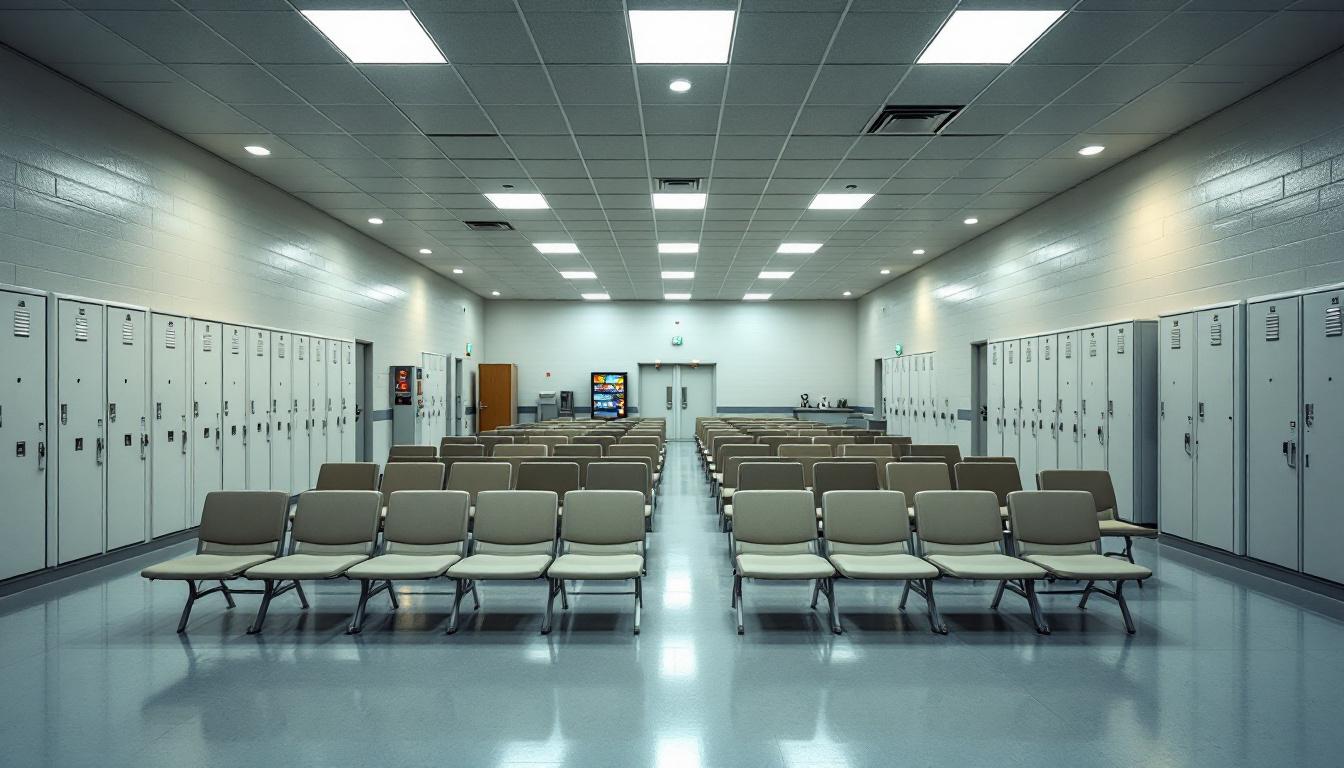
Family connections and social bonds serve as vital anchors for those incarcerated at Tensas Parish Detention, where maintaining relationships with loved ones becomes an integral part of navigating daily life behind bars. At present, the facility actively structures its operations around a routine that begins with early morning counts and meal service, followed by work assignments, programming activities, and designated periods for personal time and communication with family members. The rhythm of each day typically revolves around scheduled movements between housing units, common areas, and program spaces, creating opportunities for social interaction among residents while maintaining the security protocols necessary for facility operations.
Living accommodations generally consist of dormitory-style housing units or smaller cells, depending on classification levels and available space, where those incarcerated share common areas that foster a sense of community among residents. Meals are typically served in a central dining area at designated times throughout the day, providing structured opportunities for social interaction and conversation among those housed at the facility. Additionally, these shared dining experiences often become important moments for residents to connect with one another, share news from home, and provide mutual support during their time of incarceration.
While security considerations shape the overall environment, the facility typically offers various recreational activities and programming opportunities that furnish structure and purpose to daily life, including educational classes, work assignments within the facility, and organized physical activities. Those incarcerated may participate in facility maintenance duties, kitchen operations, or other institutional jobs that provide both routine and the opportunity to develop skills while serving their sentences. Communication with family members usually occurs through scheduled visitation periods, telephone access during designated hours, and correspondence, allowing residents to maintain crucial connections with their support systems and work toward successful reintegration into their communities upon release.
Ready to Connect?
Start communicating with your loved one today
Search for an Inmate
